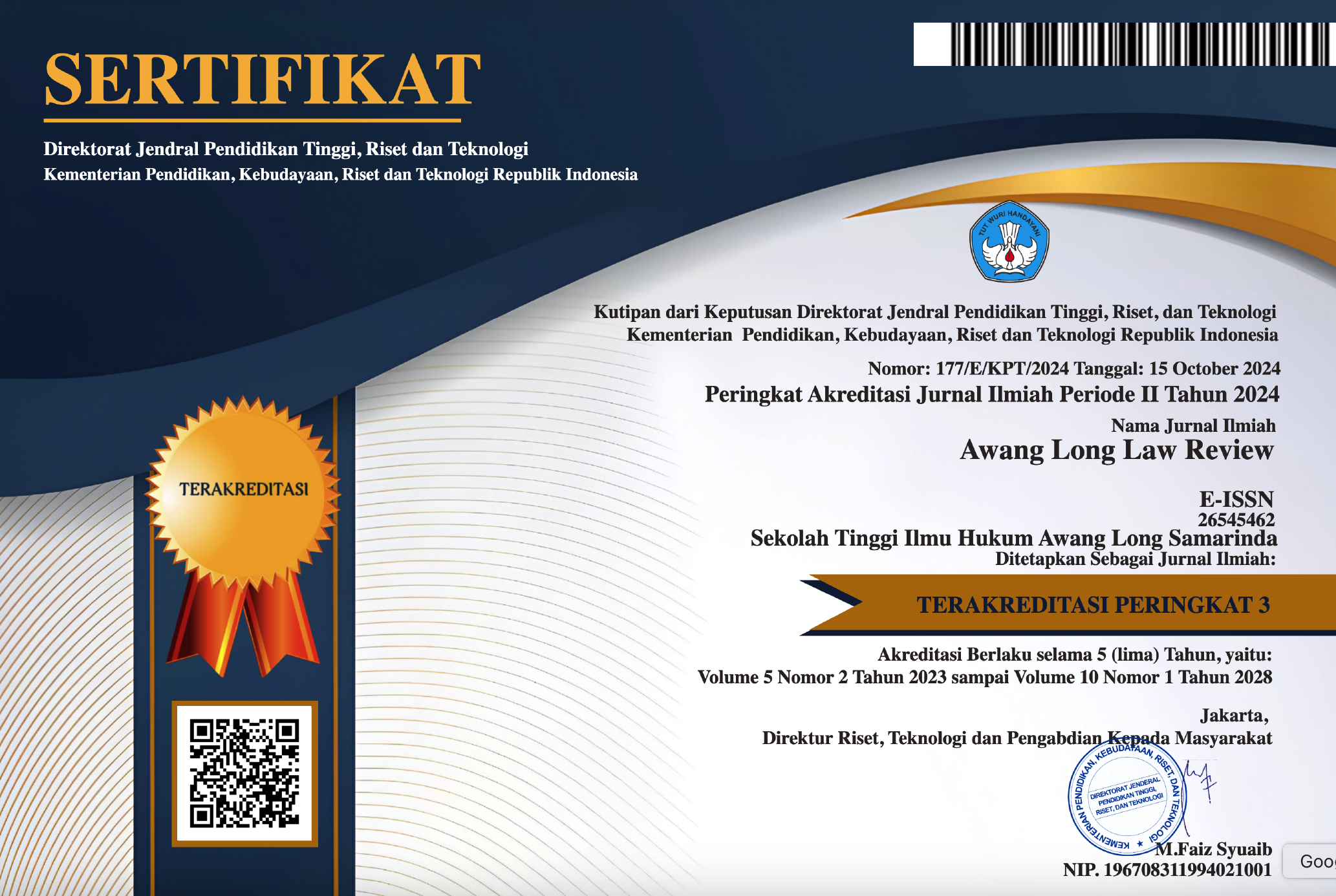IMPLEMENTATION ANALYSIS OF E-PROCUREMENT IN INCREASING SMALL AND MEDIUM ENTERPRISE PARTICIPATION IN MALANG REGENCY
Abstract
E-procurement (electronic procurement of goods and services) is the digital transformation of government procurement processes based on the internet. It offers opportunities to make procurement more transparent, effective, efficient, and accountable. The implementation of E-procurement is one manifestation of good governance. However, various regulations that encourage the participation of SMEs (Small and Medium Enterprise) in government procurement have not been utilized properly. This research was conducted to analyze the implementation of E-procurement in increasing the SME’s participation in Malang Regency. This study adopted an explanatory research design using a quantitative approach with a sample size of 75. The analysis results state that there is a significant relationship between the performance of procurement services, leadership, e-procurement, and the enhancement of SMEs' participation in Malang Regency.
Downloads
References
Asogwa, B.E. (2013). Electronic Government as a Paradigm Shift for Efficient Public Services: Opportunities and Challenges for Nigerian Government. Libr. Hi Tech 31 (1), 141-159.
Basu, S. (2004). E-government and Developing Countries: An Overview. Int. Rev. Law Comput. Technol. 18 (1), 109-132.
Bwalya, K.J., Mutula, S. (2016). A Conceptual Framework for E-government Development in Resource-Constrained Countries: The Case of Zambia. Inf. Dev. 32 (4), 1183-1198.
Fadilla, J. (2019). Peranan Perbankan Syariah Terhadap Pengembangan Modal Usaha Mikro, Kecil dan Menengah (UMKM). Al-Tijary, 49–58.
Fahmi, I. (2018). Pengantar Ilmu Kepemimpinan. PT. Rajagrafindo Persada.
Kamal, M. (2021). Analisis Kebijakan Pengadaan Barang Dan Jasa Pemerintah Berkelanjutan. Jurnal Transformasi Administrasi, 10(02), 131–142. http://jta.lan.go.id/index.php/jta/article/view/162.
Iqbal, M. (2020). Pengaruh Pelaksanaan E Katalog dalam Pengadaan Barang/Jasa Pemerintah terhadap UMKM. Jurnal USM Law Review Vol. 3 No. 1, 77-97.
Johannes, Nifita, A. T., Novitasari. (2012). Partisipasi Pemasok dalam Penyelenggaraan E-procurement di Kota Jambi. Jurnal Manajemen Vol. 1 No.1, 40-51.
Lembaga Kebijakan Pengadaan Barang/Jasa Pemerintah. (2021). Peraturan LKPP Nomor 12 Tahun 2021. Jaringan Dokumentasi Dan Informasi Hukum BPK RI, 1, 36.
Lio, M.C., Liu, M.C., Ou, Y.P. (2011). Can The Internet Reduce Corruption? A Cross-Country Study Based on Dynamic Panel Data Models. Gov. Inf. Q. 28 (1), 47-53.
LKPP. (2018). Ketentuan Umum Pengadaan Barang / Jasa Pemerintah. Modul Pelatihan PBJP Berbasis PERPRES No.16 Tahun 2018.
Los, U. M. D. E. C. D. E., & Syarief, F. (2020). Pengembangan Dan Pemberdayaan Usaha Mikro, Kecil Dan Menengah (UMKM). In Jurnal Kebijakan dan Manajemen Publik (Vol. 2, Issue 2).
Marlinah, L. (2020). Peluang dan Tantangan UMKM Dalam Upaya Memperkuat Perekonomian Nasional. Jurnal Ekonomi, 22(2), 118–124.
Myint, U. (2000). Corruption: Cause, Consequences and Cures. Asia-Pac. Dev. J. 7 (2), 33-58.
Neupane, A., Soar, J., Vaidya, K. (2014a). An Empirical Evaluation of The Potential of Public E-Procurement to Reduce Corruption. Australas. J. Inf. Syst. 18 (2), 21-44.
Neupane, A., Soar, J., Vaidya, K., Yong, J. (2014b). Willingness to Adopt E-procurement to Reduce Corruption: Results of the PLS Path Modelling. Tranform. Gov. People Process Policy 8 (4), 500-520.
Nurchana, A. R. A., Haryono, B. H., Adiono, R. (2014). Efektivitas E-Procurement dalam Pengadaan Barang/Jasa (Studi terhadap Penerapan E-Procurement dalam Pengadaan Barang/Jasa di Kabupaten Bojonegoro). Jurnal Administrasi Publik (JAP) Vol. 2 No. 2, 355-359.
Nuryanti. (2020). Peram E-Commerce Untuk Meningkatkan Daya Saing Usaha Kecil dan Menengah (UKM). Jurnal Ekonomi Vol. 21 No. 4, 80-97.
Osei-Kojo, A. (2017). E-government and Public Services Quality in Ghana. J. Publ. Aff. 17, e1620.
Payon, F. N. (2021). Kepemimpinan Transformasional dalam Pelayanan e-Procurement (Studi di Unit Pengelola Pengadaan Barang dan Jasa Universitas Timor). Jurnal Ilmiah Administrasi Publik (JIAP) Vol. 7 No. 3, 319-327.
Rotchanakitumnuai, S. (2013). The Governance Evidence of E-government Procurement. Transform. Gov. People Process Policy 7 (3), 309-321.
Siallagan, R., Dwijatenaya, I. B. M. A., Musmuliadi. (2022). Analysis Of Implementation Of Electronic Procurement Of Goods/Services (E-Procurement) Based On Presidential Regulation Number 12 Of 2021 In The District Government Of Kutai Barat. Jurnal Ilmiah Administrasi Publik (JIMAP) Vol 1 No. 1, 112-124.
Suprianto, A., Zauhar, S., Haryono, B.S. (2019). Analisis Efektivitas Sistem E-Procurement dalam Pengadaan Barang/Jasa Pemerintah (Studi pada Fakultas Ilmu Administrasi Universitas Brawijaya. Jurnal Ilmiah Administrasi Publik (JIAP) Vol. 5 No. 2, 251-259.
Sutedi, Adrian. (2012). Aspek Hukum Pengadaan Barang & Jasa dan Berbagai Permasalahannya - Ed. 2. Jakarta: Sinar Grafika.
Undang-undang Nomor 11 Tahun 2020 tentang Cipta Kerja.
Undang-undang Nomor 20 Tahun 2008 tentang Usaha Mikro, Kecil dan Menengah.
Vaidya, K., Sajeev, A. S. M., Callender, G. (2006). Critical Factors that Influence E-procurement Implementation Success in the Public Sector. J. Publ. Procure. 6 (1&3), 70-99.
Copyright (c) 2024 Mohammad Rasul Kadarisman

This work is licensed under a Creative Commons Attribution-ShareAlike 4.0 International License.







